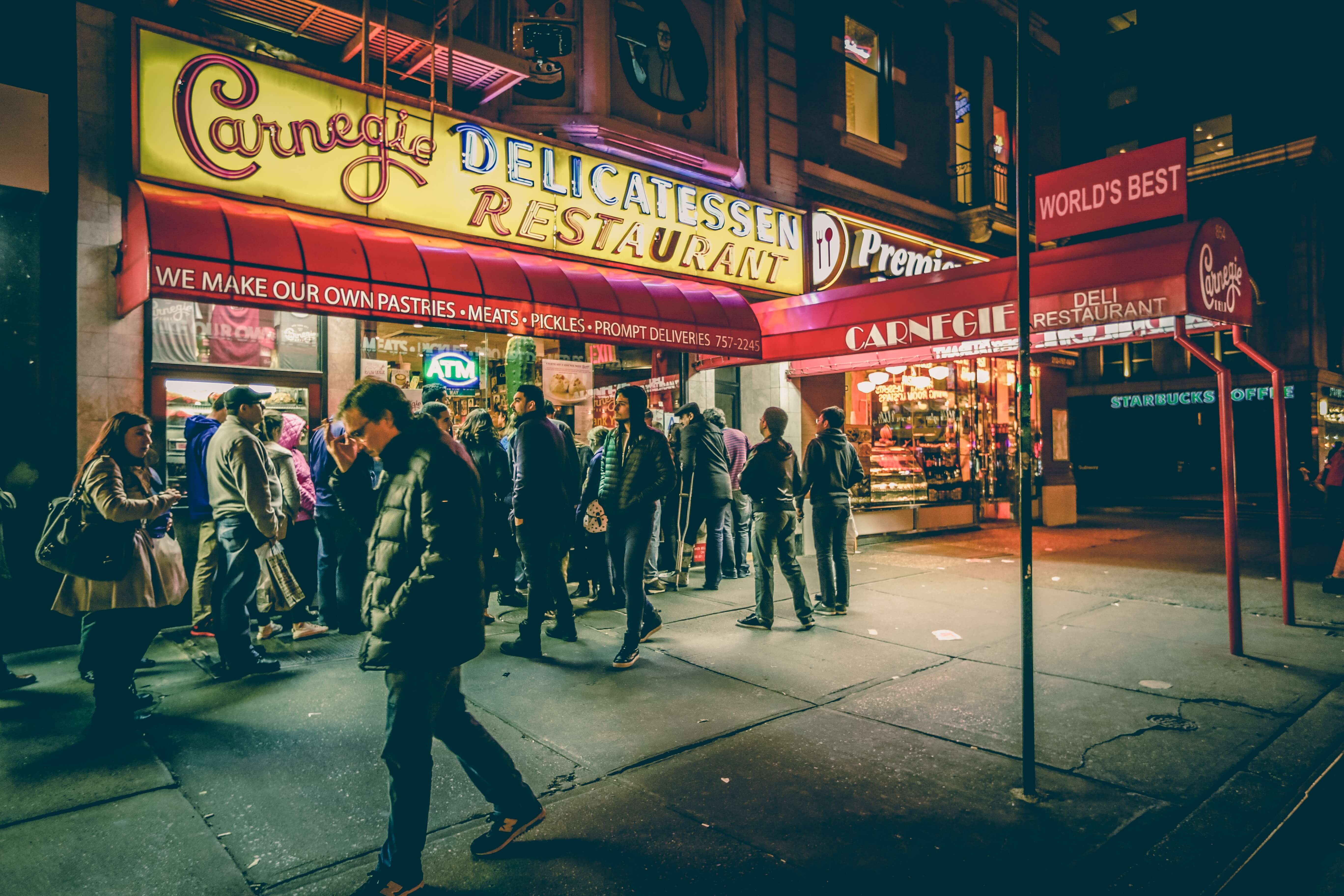There is a thing we do not always like to tell people who are graduating from high school or college, with the result that they hear of it in whispers and snatches—a specter they, too, try to ignore. And some of them escape it; they go home, or they go to graduate school, plopped down into a new life with a readymade cohort of like-minded young people. But most of us go to jobs in cities new to us, seeking adventure and success, and we find them, but we also encounter that specter. Its name is loneliness.
There are different kinds of loneliness, but we do not have names for them. It would be nice if we did. If we could throw out an offhanded comment like, ‘I’ve got a bit of the usual topodoloria that one expects three weeks after moving somewhere new,” instead of having to stay mum or else burst out: “I wish one single thing felt familiar in this place besides the coffee mug I’m carrying around obsessively because it reminds me of home.”
We need words for the loneliness of a long-distance relationship, the unreasonable rage at happy, cuddling couples when it is still weeks til you hold your person and something finally unknots inside of you. The ache of being single and wanting not to care, but thinking you would do anything to avoid one more engagement photo in your feed. The effort of trying not to weep at a party because you only wish you had people to feel safe with. The disappointment of a perfect summer evening when you have no one to give a beer on your porch.
Why does saying “I’m lonely” feel like admitting weakness, like if you had to foist the news on people that you had a disease? In a culture so far removed from the tribes and villages that have held most humans in history—a culture designed for loneliness—we don’t know how to talk about it. (I imagine this conundrum is even worse if you are male.) So we eat food or watch porn or shop to assuage the emptiness. We scroll social media looking for the rush of momentary connection. We hit the gym or log extra work hours because if we can’t feel fulfilled, maybe we can at least appear successful.
Well, everybody, I’ve done all those things and they were hardly even momentary fixes and I am done being afraid of it. I’m lonely. And it’s not because my existing friends (or my husband) are inadequate; and it’s not because I am abhorrent; and it’s not that I am inordinately needy. I fall well within the normal human range of neediness. Here is why I am lonely: because I moved. Because people my age move constantly in my culture and no one is supposed to make a big deal out of it. But you don’t find and love and trust your people overnight, the people who make you snort-laugh and tell you when you’re being dumb and are good at giving you gifts. It takes a lot of friend dates, awkward party situations, mild rejections by people who are too busy for you, testing of sense-of-humor waters, weekend nights hiding with Netflix because it’s all so exhausting. What it takes, like anything worth building, is time and effort.
Meanwhile, you will be lonely. At least some of the time, it will occur to you that you’d like to share something with someone, and there will not be anyone, and it will ache.
Here is how to live with the ache:
First, you must ignore your feelings. Not the ache itself, but the momentary feelings that keep you from making and being a friend. Read this article. Trust the rational voice in your head—the one telling you that calling a faraway friend is what you need when you’ve reached the end of your feeds; or that that one person deserves a third or fourth chance even though you’ve already grabbed a magic marker to label them annoying; or that drinking alone is unhealthy and it would be better to walk, bake, or color through that ache.
Then you really must put on your confident pants and go to the damn party. (Or the church, or the meetup, or the networking event.) Yes, you will be out too late and spend several awkward minutes standing alone next to the food table. Yes, there will be obnoxious people and fake people there. But the people you’re wishing for aren’t going to come knocking; they’re putting on their pants to go to the party and maybe make small talk with you and maybe accept your invitation to coffee or trivia. Think of your beautiful friends walking around other cities and going to other parties. Your people are out there.
Trust the process. Be patient with friendships in early stages. Grow a plant from a seed. Be faithful to the little tasks of tending them. Know that the ache, though overwhelming, will not overwhelm forever.
In the meantime, pray and pray and pray. Jesus was so lonely, dear heart. How often have you wished for the head space to reach toward him? Let the ache push you to God. Be still. Pray for others. Is this not a gift, to ache for connection, to feel the gaps in the universe where we have been broken from each other? Grow more tender and more grateful. Become a person with names for lonelinesses, and give the gift of recognition, and look the lonely in the eye and share something with them. We are already more connected than we can know.

